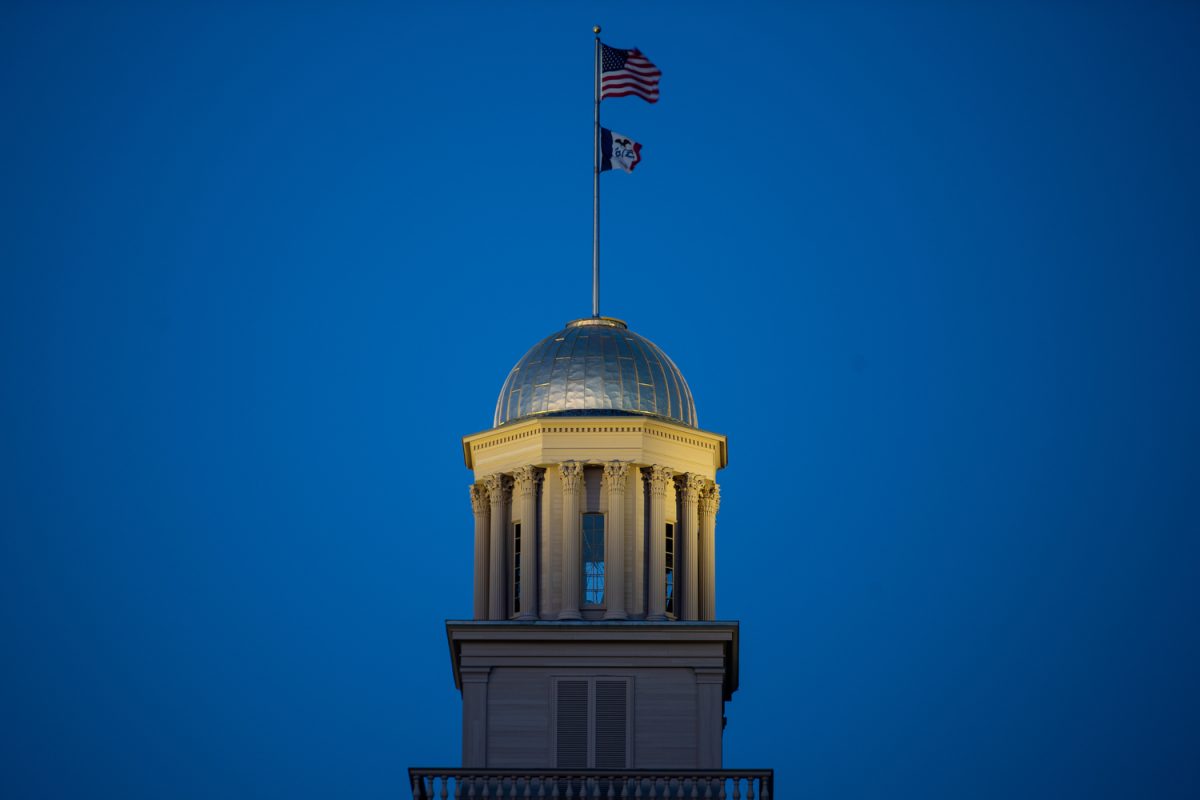Three years ago, when I made my final college decision, I was ecstatic. After a long and arduous process, I narrowed down my choices to three schools, and then I clicked the “Accept” button — I was going to be a Hawkeye.
I was excited to start this new journey and travel outside my comfort zone into a brand-new state, hoping for fresh and lively experiences. I thought nothing could diminish my eagerness and cherished anticipation. However, as I started telling my friends back home about my decision, my joy and excitement soon turned into embarrassment and regret.
Many of my hometown friends, some of whom chose to attend distinguished, high-brow institutions, viewed the University of Iowa as a “lesser” academic school. They thought I was “stupid” or “weird” for wanting to attend a university with what they considered low academic standards. Some even used the phrase “safety school” to describe my decision. I felt broken and hurt and instantly wished I could go back and switch my choice.
Luckily for me, these past three years have been the best of my life. I couldn’t be happier about my college decision. But as I reflect on my time at Iowa, I still wonder why the UI isn’t considered a pillar of academia and is often seen as a backup or “safety school” for many applicants.
I believe the answer doesn’t necessarily lie in the UI’s programs and educational quality but rather the university’s decision to remain a rolling admissions institution.
Rolling admission means that universities make an admission decision once they receive all required materials from an applicant, regardless of when they apply. This means that if a student wishes to be considered to attend the UI in the fall, they just need to get all the required materials in by the May 1 deadline.
This approach contrasts with most major universities, which have specific application deadlines, typically in early winter. Following this, a university will evaluate applications in large batches rather than on a case-by-case basis.
The decision to use the rolling admission process often leads to stories of students receiving an admission decision from Iowa within weeks or even days of applying.
One example is Brett Levenhagen, a fourth-year business major from Minneapolis, who said he heard back from Iowa within three weeks of submitting his application, a common theme for most applicants I spoke to.
Despite seeming like a good idea for students who want to end the college admissions drama and hear back from their applied schools earlier than expected, rolling admission ends up hurting the university’s reputation instead of helping it.
ISM, an independent academic strategist and advice website, discusses the issues related to colleges using rolling admission in terms of both school quality and public perception. “Perhaps the most damaging possible result of a permanent rolling admission process is the perception that your school isn’t selective at all — you’re just enrolling students for the sake of filling seats.”
No student wants to attend a university that seems to accept anyone with a pulse and a checkbook. Most students prefer to attend a college widely regarded as a high-ranking institution nationwide, not a place where 85 percent of all applicants are accepted.
If the current administration were to establish a hard deadline, it would likely affect the university’s acceptance rate and national perception.
The idea of exclusivity boosting a college’s perceived quality is discussed by College Rover, which compares typical state schools with Ivy League institutions.
“Elite universities, like Ivy Leagues, often have low acceptance rates. This contributes to their reputation and desirability as selective schools,” the site claims. “These institutions are known for offering a high-quality education and attracting top-notch students. The exclusivity associated with a low acceptance rate can enhance the school’s perceived value and prestige.”
Let me be the first to say I’m aware Iowa is not Harvard. However, the psychological concept of perceived exclusivity can be applied to schools far from the elite institutions of the East Coast.
Regardless of Iowa’s perceived academic standing, the UI is home to some elite programs. This year, the UI was ranked as the 46th public university in the country, with multiple disciplines in the top ten nationally. The Hawkeye nursing program ranked No. 4, risk management and insurance ranked eighth, and Iowa’s famous writing disciplines were dubbed ninth in the nation.
Not to mention the highly ranked graduate programs. The audiology department, physical therapy, and physician’s assistant programs all tied for second, and the speech-language pathology program ranked fifth.
Despite these rankings, it’s troubling that Iowa still isn’t regarded with the same academic respect as similar institutions around the country. I believe that rolling admission and the perceived lack of admission standards are holding back this university’s academic potential.
The current admissions board should seriously reconsider its approach by adopting a hard deadline to elevate Iowa’s standing among top institutions.



